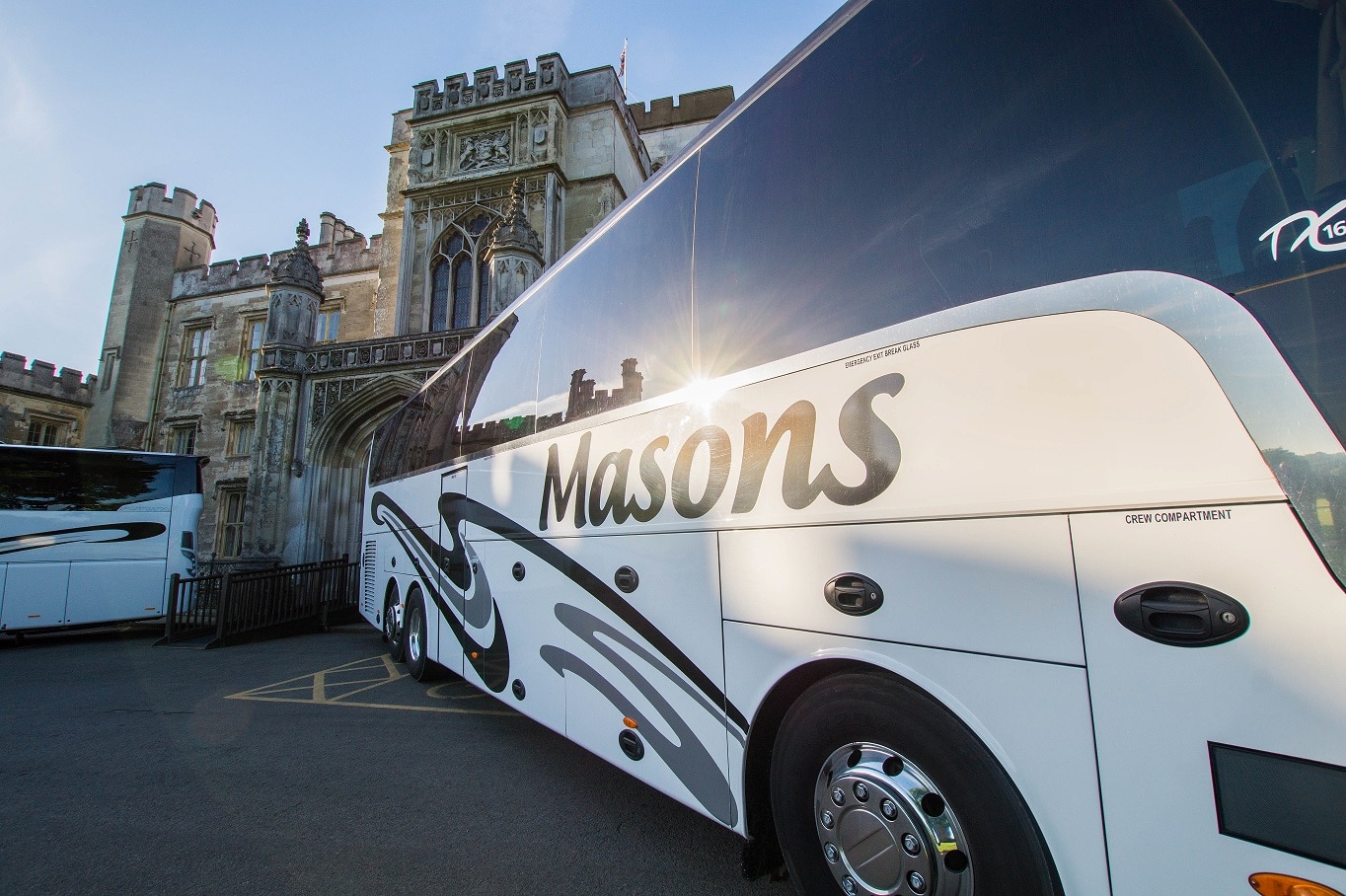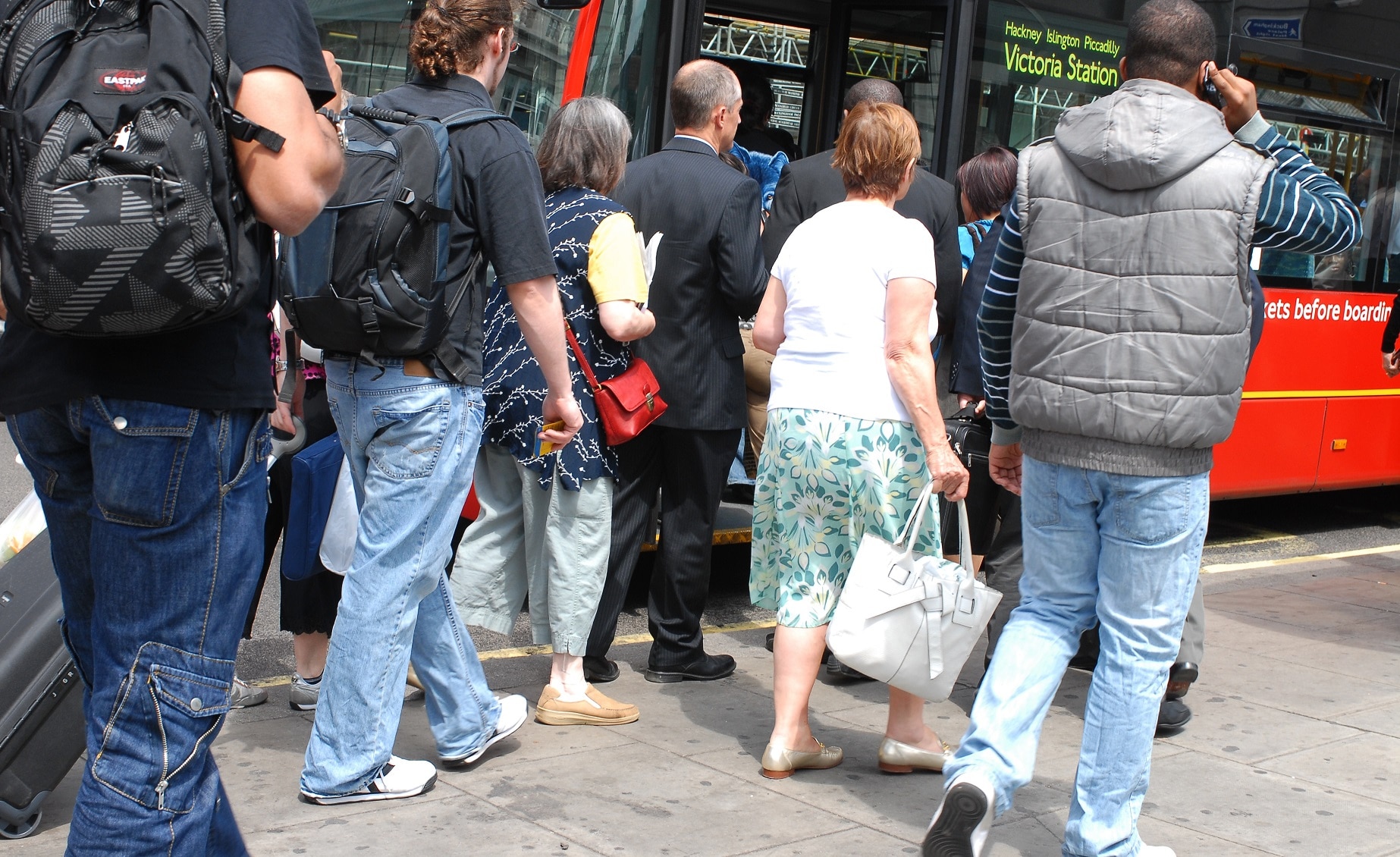The likely effect of customer loyalty on coach operators’ fortunes once the industry starts to recover from coronavirus COVID-19 has been demonstrated by Masons Minibus and Coach Hire. The Tring-based operator has taken a close look at its business as it tries to predict the post-pandemic landscape.
Like its peers, Masons has seen its workload decimated during the crisis. It has also been hit by the fact that some home-to-school services that it previously ran under contract to a local authority were converted to a commercial arrangement in late-2019. That means that it has not, thus far, been able to claim ongoing payments for that work.
But while the many negatives are obvious, Masons also sees that some positives will – eventually – come the industry’s way. General Manager Candice Mason is under no illusion that recovery will be rapid. But work that the operator has done with its customers shows that strong support for the coach sector already exists.
“We have seen some incredible loyalty from customers and staff across our business. It is fair to say that we did not realise the extent of it before the pandemic,” she says.
“Our future success hinges on managing this crisis. Among our day trip and holiday clients, 100% have agreed not to take a refund. Instead, they will transfer their bookings or receive a credit on their account.”
Communication with customers is important for Masons
Communication has been key in avoiding the need to issue potentially tens of thousands of pounds in refunds, Candice continues. Masons has been up front about the challenges that coronavirus COVID-19 has brought to its business. Dialogue with customers has continued throughout the crisis. Because of that, they understand the situation.

“The most important thing is to ensure that clients are still with us when this is all over. We have worked tirelessly so they know we are there for them.”
While Masons will be there for its customers, and vice-versa, once coronavirus COVID-19 has been tackled, what that future beyond that looks like remains unclear.
What is likely is that regardless of age, customers will expect increased onboard safety measures for at least the medium term. That will extend from school children to older passengers who take day trips and holidays by coach, suggests Candice.
“Operators that do not introduce those measures will be impacted,” she says. “Customers may expect to pay more next year to cover those requirements. We have never been the cheapest but we are trying not to have to increase our prices. Instead, we are already doing our best to enhance our level of service.” Customers may become more discerning in the future, she adds.
Candice agrees with other suggestions that a reluctance to travel overseas will give the coach industry a boost from 2021 onwards. Masons is already planning next year’s holiday programme with that in mind. It is looking at some tours that are more suited to families and younger people.
Operators ‘must consider changes outside industry’s control’
To the above considerations must be added changes that will be outside the industry’s control. In London, steps to reduce road space available to vehicles have been fast-tracked by Mayor Sadiq Khan. It looks likely that similar steps will be taken in other parts of the UK.
Not all the changes to how the industry functions might be awkward to deal with. A loyal customer base that feels looked after during the crisis, coupled with a growing swell of feeling around supporting local enterprise, could both work in coach operators’ favour.

“This period has given us chance to take stock and look at how we run our business, including how we approach staffing.
“We’ve gained a new-found respect for employees based on how they have acted throughout the crisis,” says Candice.
Downtime has also given the opportunity to look at relationships with suppliers. Masons has started discussions about whether its current insurance policy is the right one, as an example.
Do not write off fleet investment despite crisis
Where vehicles are concerned, Masons was not planning to invest over the coming year as it already has a young fleet. But the pandemic will not be used as an excuse to restrict spending on a longer-term basis.
“Investment in vehicles is a long-term strategy and it must remain a priority,” says Candice. “Newer coaches have implications for maintenance, compliance with emission control zones and customer expectations.”
As part of its planning for the future, Masons has a weather eye on battery-electric coaches. “We wonder whether the move towards zero-emission in our sector will now be something that comes more quickly. The current quiet period gives time to look into whether it is the right thing to do.”
For Masons, 2020 was – at the beginning – looking like it would be a good season. Its team had worked hard to grow the business from five to 18 vehicles in under five years and that was reaping rewards.
While the momentum it entered the new decade with has been slowed, it has not been lost entirely. Masons has made the best of a terrible situation by remaining in close contact with its most valuable asset – its customer base – while also utilising the available time closely to look at what the future of the industry may hold.



























